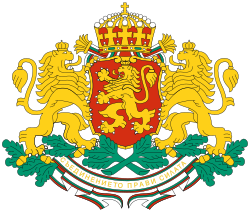| ||
| Do you support MPs being elected by a majority electoral system with an absolute majority in two rounds? | ||
|---|---|---|
| Do you support the introduction of compulsory voting in elections and referendums? | ||
| Do you support the annual state subsidy granted to finance political parties and coalitions to be one lev for every vote received in the last parliamentary elections? | ||
Yes: 50-60% 60-70% 70-80% | ||
 |
|---|
A three-question referendum was held in Bulgaria on 6 November 2016 alongside presidential elections. [1] Voters were asked whether they supported limiting public funding of political parties to one lev per year per valid vote received at the previous elections, the introduction of compulsory voting in elections and referendums, and changing the electoral system for the National Assembly to the two-round system. [2] In order to be binding, the number of voters participating in the referendum must be equal to or higher than the number who voted in the 2014 parliamentary elections. [3]
Contents
All three proposals were supported by a majority of those voting, but the number of votes cast (3,488,484) was around 12,000 lower than in the 2014 parliamentary elections, meaning the quorum was not met. However, as over 20% of registered voters voted in favour, the proposals still had to be debated in the National Assembly. [4] The National Assembly subsequently rejected all three proposals.


